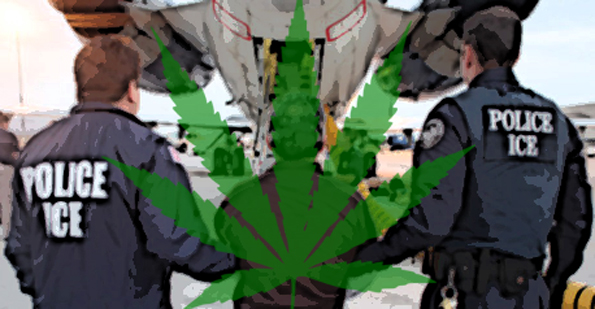The United Nations Office on Drugs and Crime (UNODC) has denied any policy changes after Sir Richard Branson leaked an official document, which appeared to back decriminalization and possession of drugs globally.
The UNODC is the agency of the UN that oversees international drugs conventions and offers guidance on compliance.
According to a spokeswoman for the Virgin founder, Branson, who sits on the Global Commission on Drug Policy, chose to release the information because he feared the UN would have a last-minute change-of-heart.
“Richard has released the announcement ahead of the UNODC due to concern that the UNODC would do a volte-face at the last possible moment,” the spokeswoman said.
.@unodc drug policy shift could end needless criminalisation of millions of drug users http://t.co/zoXmZKESRA pic.twitter.com/cfp6udxORA
— Richard Branson (@richardbranson) October 19, 2015
Branson announced on his blog that he was “delighted” by the new document which appeared to mark a significant shift in tone by the UN:
“In [a statement] the UNODC, which has shaped much of global drug policy for decades, call on governments around the world to decriminalise drug use and possession for personal consumption for all drugs.
“This is a refreshing shift that could go a long way to finally end the needless criminalisation of millions of drug users around the world.
“My colleagues on the Global Commission on Drug Policy and I could not be more delighted. Together with countless other tireless advocates, I’ve for years argued that we should treat drug use as a health issue, not as a crime.
“While the vast majority of recreational drug users never experience any problems, people who struggle with drug addiction deserve access to treatment, not a prison cell.”
The document was set for release at the International Harm Reduction Conference in Kuala Lumpur, Malaysia, on Sunday.
Here is the full briefing paper from the UNODC.
The UNODC briefing document explains that “decriminalizing drug use and possession for personal consumption is consistent with international drug control conventions and may be required to meet obligations under international human rights law.”
The now controversial document was authored by Dr Monica Beg, chief of the HIV/AIDs section of the UNODC in Vienna. After Branson’s release of the two-page policy paper, UN officials in Vienna immediately refuted the notion that there had been any official change in official UN drug policy.
A UN spokesman in Vienna told The Telegraph:
“The briefing paper on decriminalisation … intended for dissemination and discussion at a conference in Kuala Lumpur is neither a final nor formal document from the UNODC, and cannot be read as a statement of UNODC policy.
“It remains under review and UNODC regrets that, on this occasion, there has been an unfortunate misunderstanding about the nature and intent of this briefing paper.
“UNODC emphatically denies reports that there has been pressure on UNODC to withdraw the document. But, it is not possible to withdraw what is not yet ready.”
He added: “Overall, UNODC remains committed to the balanced approach that, in particular, promotes alternatives to incarceration in line with international human rights standards.”
But according to a report by the BBC this statement would be untrue: “A paper from the UN Office on Drugs and Crime (UNODC) has been withdrawn after pressure from at least one country.”
So while the UN claims that they technically haven’t been pressured to withdraw the document, be aware of the nuance in the terms they use, as they claim that it wouldn’t be possible to be pressured to withdraw a document that isn’t yet finalized.
Nowhere in this weak denial did they give any credibility to the notion that pressure from “at least one country” isn’t currently taking place.
After the UN canned the idea of decriminalization, Richard Branson released the following statement Monday evening:
It’s good to see UNODC have now engaged in this issue. However, I hope that they will remain strong in defending and implementing what is a remarkable statement.
I challenge Yury Fedotov, the Executive Director of UNODC, to point out if there is anything in their briefing paper that is inaccurate and to explain why (he should be proud of it). The paper spells out in clear terms and based on extensive evidence: there are strong arguments for treating drugs as a health issue and not imprisoning or otherwise criminalising people for personal use or possession of drugs.
As I outlined in this interview with Bloomberg, and the Global Commission on Drug Policy has stated for many years, drugs should be treated as a health issue. My great hope is that today’s actions bring that day a little bit closer to reality, so that the millions who continue to be harmed by current policies can be helped instead.
Any guesses as to which country would be exerting this pressure? Sound off in the comments!
Article by Jay Syrmopoulos of The Free Thought Project. Jay is an investigative journalist, free thinker, researcher, and ardent opponent of authoritarianism. He is currently a graduate student at University of Denver pursuing a masters in Global Affairs. Jay’s work has been published on Ben Swann’s Truth in Media, Truth-Out, AlterNet, InfoWars, MintPressNews and maany other sites. You can follow him on Twitter @sirmetropolis, on Facebook at Sir Metropolis and now on tsu
The post The UN Had a Plan to Decriminalize Drugs Globally, But “One Country” Just Shut it Down appeared first on Counter Current News.






